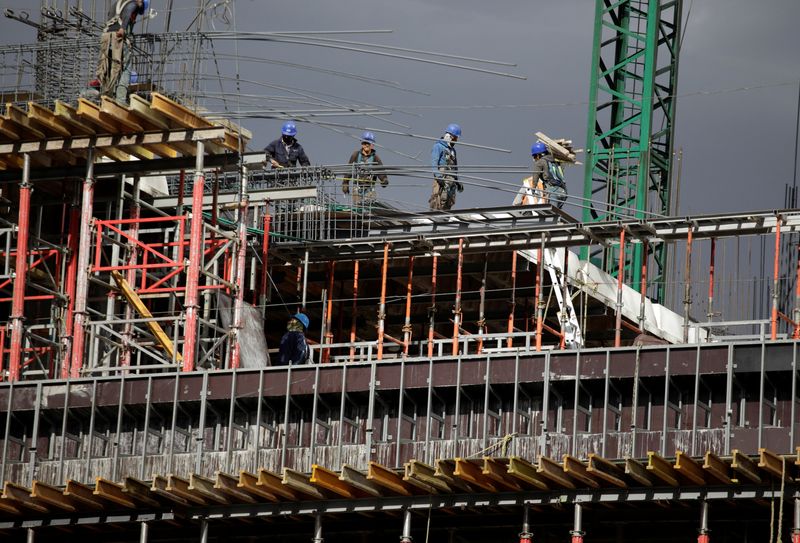MEXICO CITY (Reuters) - The Mexican economy unexpectedly shrank by 0.2% in October from the previous month, as the country's faltering recovery from the impact of the COVID-19 pandemic dragged into the fourth quarter, official data showed on Friday.
October's seasonally adjusted contraction was the third month-on-month decline in economic activity in a row, figures from national statistics agency INEGI showed.
A Reuters poll of analysts had forecast the economy would grow by 0.8% during October following a disappointing third quarter in which gross domestic product (GDP) shrank by 0.4%.
"Going forward, lingering supply-chain frictions, cost-push pressures, policy uncertainty, and weak business confidence are likely to weigh on the broad industrial sector for a while," Goldman Sachs (NYSE:GS) economist Alberto Ramos said in a client note.
Still, Ramos said Mexico's economy had room to grow and should benefit in coming quarters from terms of trade, increasing COVID-19 vaccinations, and normalization of activity in sectors still lagging, particularly services.
Separate INEGI data showed exports performed strongly in November, reaching a record $43.9 billion in seasonally adjusted terms, and contributing to an adjusted trade surplus of $463 million after six straight months of deficits.
Mexican business operations have been disrupted by bottlenecks in international supply chains, which have led to temporary work stoppages in industries including carmaking, a pillar of the country's manufacturing sector.
But a breakdown of the INEGI figures showed the contraction in October was led by weakness in tertiary activities, which cover services, and by primary activities, which encompass farming, fishing and mining.

Primary activities shrank by 1.2% from September, while tertiary activities were down by 0.5%. By contrast, secondary activities, which include manufacturing, rose by 0.6%.
Compared to the same month last year, the economy grew in October by 0.3% in seasonally adjusted terms. In unadjusted terms it shrank 0.7%, the INEGI data showed.